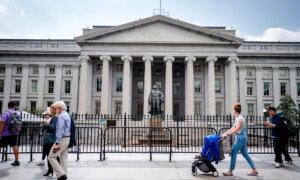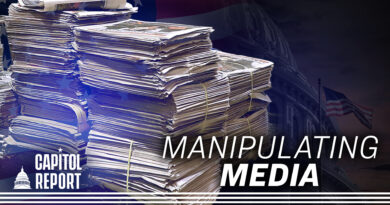Small Business Optimism Soars as Economic Outlook Reaches 40-Year Peak
Small business confidence is on the rise as President-elect Donald Trump’s pro-growth economic agenda fuels optimistic expectations for 2025.
The NFIB survey highlights that 52 percent of small-business owners anticipate economic improvement, marking a 16-point increase since November and the highest optimism level recorded since the fourth quarter of 1983. This remarkable upswing signals an optimism not seen in decades as the small-business community looks forward to a favorable economic climate under new leadership.
“Optimism on Main Street continues to rise in light of the brighter economic outlook post-election,” stated NFIB chief economist Bill Dunkelberg. “Small-business owners feel increasingly certain and encouraged by the economic agenda of the new administration. Expectations for economic growth, lower inflation, and favorable business conditions have surged in anticipation of pro-business policies and legislation in the upcoming year.”
The rise in optimism goes beyond just future economic prospects. The NFIB Small Business Optimism Index, a metric of current conditions, climbed by 3.4 points to reach 105.1 in December. This marks the second consecutive month above the 51-year average of 98 and the highest reading since October 2018.
The proportion of owners viewing this as a good time to expand increased by six points to 20 percent (seasonally adjusted), the highest rate since February 2020. Additionally, the net percentage expecting higher real sales volumes rose eight points to 22 percent, also a four-year high.
Plans for inventory investment also showed improvement, with a net of 6 percent of owners intending to invest in inventories—the strongest indication since December 2021. Moreover, 56 percent of owners reported spending on capital expenditures in the last six months, an increase of two points from November, with investments in equipment, vehicles, and facility expansions indicating readiness for growth in the coming year.
Despite these positive developments, challenges remain. Labor shortages are still a factor, with 35 percent of small-business owners reporting unfilled job openings in December. Inflation continues to be a major issue, cited by 20 percent of owners as their primary concern. Nevertheless, the incidence of price increases appeared stable, with a net 24 percent of owners raising their average selling prices, unchanged from November.
Additionally, fewer small-business owners increased wages in December, with a net of 29 percent reporting compensation increases, a decrease of three points from November. This represents the lowest level since March 2021, indicating that upward wage pressure and inflation worries may be easing.
The NFIB’s uncertainty index also dropped by 12 points to 86, reflecting a growing confidence among business owners following the results of November’s election.
Dunkelberg noted that the rise in small-business optimism signifies expectations that the Trump administration’s policies—including promises for sweeping tax reforms and deregulation—could alleviate operational burdens while enhancing profits and growth.




